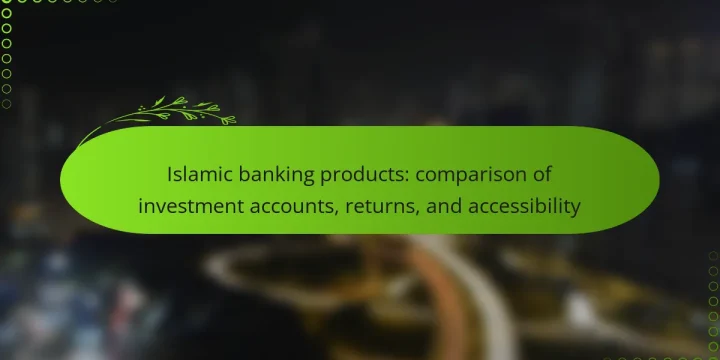
What are Islamic banking products? Islamic banking products are financial instruments that comply with Islamic law (Sharia). They avoid interest (riba) and promote risk-sharing. Common products include Murabaha, where banks buy goods and sell them at a profit margin. Another product is Mudarabah, a partnership where one party provides capital and the other manages the investment. Musharakah involves joint ventures where profits and losses are shared. Takaful is a cooperative insurance model based on mutual assistance. These products are designed to provide ethical investment opportunities. They cater to clients seeking Sharia-compliant financial solutions. Islamic banking products have gained popularity due to their ethical nature and community-focused principles. How do Islamic banking products differ from conventional banking products? Islamic banking products differ from conventional banking products primarily due to their adherence…







